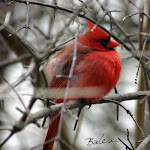•
•
Can our reasoning mind be purged of coercion,
allowing our heart its unfettered joy?
Can we act like every other species,
seeking no reward,
taking no pride,
guiding without enslaving?
From Verse 10 of "Tao Te Ching" by Lao Tzu (Old Master)
written around the 6th century BC
Twenty-six hundred years later: Perhaps the Gulf Oil Spill has me thinking about our species.
There is a dense concentration of oddly shaped, highly specialized neurons known as “spindle cells" located in the very evolved right frontal cortex of our brains. They are often referred to as the brain cells that “make us human.”
Charles Siebert writes, “In recent imaging tests, spindle cells have been shown to light up in our skulls like summer evening fireflies in response to a variety of different emotional and social stimuli: the picture of a loved one: scenes of others suffering; feelings of personal embarrassment, or guilt, or self-consciousness.”
"Chimps recognize themselves in mirrors, as we know dolphins and elephants do...chimps—like us and elephants and dolphins and who knows how many other species—feel remorse and sorrow, mourning the deaths of relatives and friends."
How human is that?
Spindle cells have also been found in chimpanzees and other primates, and in the brains of dolphins and whales, yet those species do not seem to be fouling their own nest. Perhaps what they do lack is the spindle cell that controls greed.
•
•
•
Can our reasoning mind be purged of coercion,
allowing our heart its unfettered joy?
Can we act like every other species,
seeking no reward,
taking no pride,
guiding without enslaving?
From Verse 10 of "Tao Te Ching" by Lao Tzu (Old Master)
written around the 6th century BC
Twenty-six hundred years later: Perhaps the Gulf Oil Spill has me thinking about our species.
There is a dense concentration of oddly shaped, highly specialized neurons known as “spindle cells" located in the very evolved right frontal cortex of our brains. They are often referred to as the brain cells that “make us human.”
Charles Siebert writes, “In recent imaging tests, spindle cells have been shown to light up in our skulls like summer evening fireflies in response to a variety of different emotional and social stimuli: the picture of a loved one: scenes of others suffering; feelings of personal embarrassment, or guilt, or self-consciousness.”
"Chimps recognize themselves in mirrors, as we know dolphins and elephants do...chimps—like us and elephants and dolphins and who knows how many other species—feel remorse and sorrow, mourning the deaths of relatives and friends."
How human is that?
Spindle cells have also been found in chimpanzees and other primates, and in the brains of dolphins and whales, yet those species do not seem to be fouling their own nest. Perhaps what they do lack is the spindle cell that controls greed.
- Source quoted:
“The Wauchula Accord: Toward a New Understanding of Animals”
published in 2009 by Charles Siebert
“The Wauchula Accord: Toward a New Understanding of Animals”
published in 2009 by Charles Siebert
•
•



































































No comments:
Post a Comment